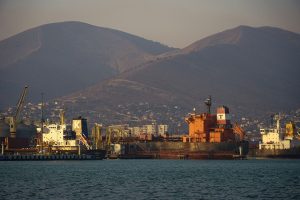In the dynamic landscape of US-Brazil petroleum trading, securing overdue accounts during market fluctuations presents unique challenges and considerations. This article examines the complexities of account recovery, legal implications, and risk mitigation strategies in the context of market volatility. Furthermore, it delves into the dynamics of petroleum trading between the US and Brazil, exploring trade agreements, logistical challenges, and cultural nuances. Through a comprehensive analysis, this article aims to provide valuable insights for navigating the intricacies of securing overdue accounts in this industry.
Key Takeaways
- Understanding the legal framework for account recovery in US-Brazil petroleum trading
- Implementing risk mitigation strategies to protect against market fluctuations
- Navigating cultural and communication challenges in cross-border petroleum trading
- Adapting payment schedules to mitigate the impact of market volatility
- Leveraging trade agreements and regulations to optimize petroleum trading operations
Securing Overdue Accounts in US-Brazil Petroleum Trading During Market Fluctuations
Challenges in Account Recovery
Facing challenges in debt recovery is a common occurrence in the petroleum trading industry. Market fluctuations can significantly impact the timely collection of overdue accounts. It is crucial for companies to adopt proactive strategies to mitigate the risks associated with delayed payments. The table below illustrates the impact of market fluctuations on payment schedules:
| Impact | Description |
|---|---|
| Delayed Payments | Increased cash flow strain |
| Currency Fluctuations | Exchange rate risks |
- Implementing robust credit management policies is essential for minimizing the impact of overdue accounts.
- Effective communication with clients and partners is key to resolving payment disputes and expediting debt recovery.
Companies must remain vigilant in monitoring overdue accounts and take necessary steps to recover outstanding debts.
Legal Considerations
Legal considerations in US-Brazil petroleum trading involve navigating complex international trade regulations and agreements. It is crucial to understand the legal framework governing cross-border transactions and ensure compliance with all applicable laws. Additionally, establishing clear contractual terms and dispute resolution mechanisms is essential for mitigating legal risks and protecting the interests of all parties involved. The table below provides an overview of key legal considerations in US-Brazil petroleum trading:
| Legal Considerations | Description |
|---|---|
| Trade Agreements | Bilateral and multilateral agreements |
| Regulatory Compliance | Adherence to import/export regulations |
| Dispute Resolution | Mechanisms for resolving legal disputes |
- Understanding the implications of international trade laws is critical
Effective legal risk management is essential for successful petroleum trading.
Risk Mitigation
In the context of risk mitigation, it is essential to develop a comprehensive strategy for managing overdue accounts. This includes implementing robust credit policies, establishing clear payment terms, and leveraging legal mechanisms for debt recovery. Additionally, close monitoring of trade payments and proactive communication with counterparties is crucial to minimize financial exposure.
Market Fluctuations and Impact on Petroleum Trading
Understanding Market Volatility
Market volatility in petroleum trading can have a significant impact on payment schedules. Fluctuating prices can lead to delays in payments, creating challenges for companies in managing cash flow. It is essential for businesses to implement risk mitigation strategies to navigate through these uncertainties. Understanding market trends and establishing flexible payment terms are crucial in adapting to the ever-changing market conditions.
| Impact on Payment Schedules |
|---|
| Delays in payments due to price fluctuations |
- Trade agreements and regulations
- Logistics and supply chain challenges
- Cultural and communication considerations
Strategies for Managing Price Fluctuations
*In order to navigate the volatility of the market, it is essential for companies to implement diverse risk management strategies. This includes hedging against price fluctuations, diversifying trading partners, and adjusting payment schedules. Additionally, maintaining open communication with stakeholders and closely monitoring market trends is crucial for making informed decisions. The following table illustrates the impact of price fluctuations on payment schedules:| Impact of Price Fluctuations on Payment Schedules | High Volatility | Moderate Volatility | Low Volatility ||—|—|—|—|| Payment Schedule | Accelerated | Revised | Stable ||
Impact on Payment Schedules
The fluctuating market has led to unpredictable payment schedules, posing challenges for traders. Implementing digital solutions can streamline payment processes and reduce delays. This requires careful consideration of legal and regulatory requirements.
| Key Considerations |
|---|
| Regulatory Compliance |
| Payment Security |
| Efficiency and Automation |
US-Brazil Petroleum Trading Dynamics
Trade Agreements and Regulations
The trade agreements between the US and Brazil play a crucial role in petroleum trading. Understanding the legal regulations is essential for risk mitigation. Additionally, exploring payment solutions is vital for account recovery.
It is important to consider the legal implications of payment delays and explore alternative payment solutions.
Here’s a table illustrating the impact of trade agreements and regulations on petroleum trading:
| Aspect | Impact |
|---|---|
| Tariffs | Influences pricing |
| Compliance | Affects logistics |
| Documentation | Impacts payment schedules |
- Regulatory compliance
- Payment terms
- Risk assessment
Conclusion
Key Takeaways
- After understanding the challenges in account recovery, it is crucial to implement a recovery system that includes skip-tracing, investigation, and daily contact attempts.
- Legal considerations play a vital role in post-judgment enforcement and successful collection of overdue accounts.
- Mitigating risks in overdue accounts requires the utilization of an effective third-party collection partner.
It is important to maintain a watchful eye over outstanding Accounts Receivables to prevent distressed accounts from becoming write-offs.
| Topic | Highlight |
|---|---|
| Equipment trade in U.S.A. and Brazil | Complexities of post-judgment enforcement |
Recommendations
After careful analysis, the following recommendations are suggested:
- Establish clear and detailed payment schedules.
- Implement risk mitigation strategies to address market fluctuations.
- Foster open communication channels between US and Brazilian counterparts.
It is crucial to prioritize timely communication and collaboration.
| Recommendation | Description |
|---|---|
| Clear Payment Schedules | Ensure transparency and adherence to payment timelines. |
| Risk Mitigation Strategies | Implement measures to minimize financial exposure. |
| Open Communication Channels | Facilitate effective information exchange and problem-solving. |
Future Outlook
The future outlook for US-Brazil petroleum trading is promising, with potential for growth and expansion. Collaborative agreements between the two countries are expected to further strengthen the trade relationship. However, market fluctuations may continue to pose challenges, requiring flexible strategies for risk mitigation. It is important for companies to stay informed and adaptable in order to navigate the evolving landscape of petroleum trading.
In conclusion, effective debt collection solutions are essential for businesses to thrive. With our no recovery, no fee approach, we make debt collections simple and hassle-free. Visit our website for more information on debt collection solutions made simple.
Frequently Asked Questions
What are the common challenges in recovering overdue accounts in US-Brazil petroleum trading?
The common challenges include dealing with cross-border legal complexities, communication barriers, and navigating different business cultures.
What legal considerations should be taken into account when securing overdue accounts in petroleum trading?
Legal considerations may include international trade laws, contract enforcement, dispute resolution, and compliance with regulatory requirements in both the US and Brazil.
How can companies mitigate the risks associated with overdue accounts during market fluctuations?
Companies can mitigate risks through proactive risk assessment, diversification of trading partners, effective hedging strategies, and robust financial planning.
What is the impact of market volatility on petroleum trading between the US and Brazil?
Market volatility can lead to price fluctuations, supply chain disruptions, and changes in payment schedules, affecting the overall trading dynamics between the two countries.
What strategies can be employed to manage price fluctuations in petroleum trading?
Strategies may include forward contracts, options, and other financial instruments to hedge against price volatility, as well as strategic inventory management.
How do cultural and communication considerations influence US-Brazil petroleum trading?
Cultural differences and language barriers can impact negotiation styles, decision-making processes, and the overall effectiveness of communication in petroleum trading between the two countries.





